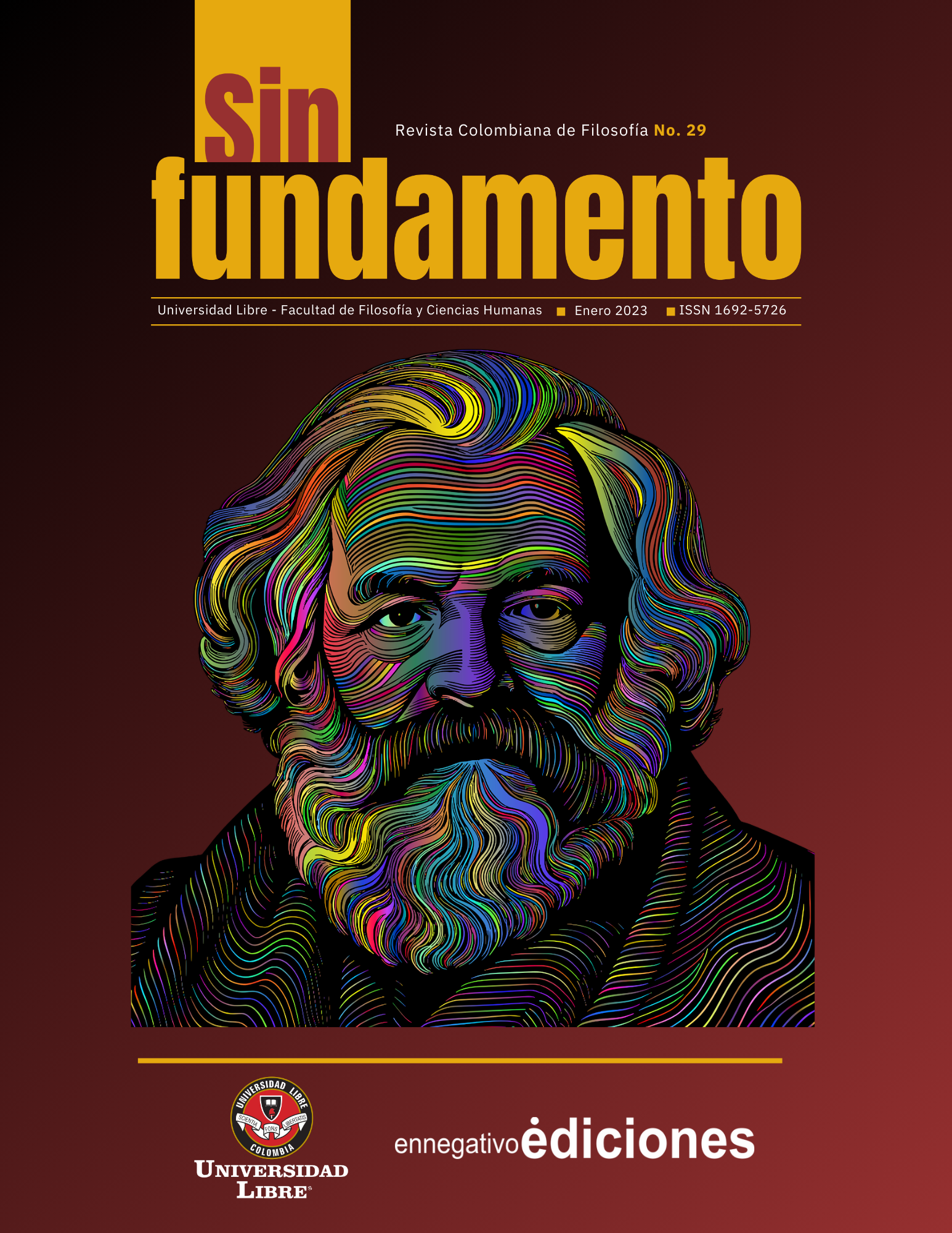Songs of Eros: The Blues of Bessie Smith
DOI:
https://doi.org/10.18041/1692-5726/sin_fundamento.29.2023.12406Keywords:
Angela Davis, Herbert Marcuse, Eros and Civilization, Blues, AestheticsAbstract
The aim of this article is to demonstrate how Bessie Smith's Classic Blues exemplifies the potential for change through the aesthetic dimension. We will reference the works Eros and Civilization: A Philosophical Inquiry into Freud, An Essay on Liberation, and The Aesthetic Dimension: Toward a Critique of Marxist Aesthetics by Herbert Marcuse to illustrate how music possesses a persuasive power over the minds, souls, and bodies of listeners. Additionally, we will utilize Blues Legacies and Black Feminism: Gertrude “Ma” Rainey, Bessie Smith, and Billie Holiday by Angela Davis, which presents the Blues as a means for expressing and transmitting the ideas and thoughts of Black women, capable of provoking changes in African American consciousness. Bessie Smith, one of the best-known singers of Classic Blues, is featured in this article. The singer preserved an African heritage in her songs that was presented to African Americans, serving as an incentive for alternative models of behavior and attitudes towards the established norms.
Downloads
References
Collins, P. H. (2019) Black Feminist Thought: Knowledge, Consciousness, and the Politics of Empowerment. Routledge.
Davis, A. (1998). Blues Legacies and Black Feminism: Gertrude “Ma” Rainey, Bessie Smith, and Billie Holiday. Vintage.
Marcuse, H. (1969) An Essay on Liberation. Beacon Press.
Marcuse, H. (1973). Counter-Revolution and Revolt. Beacon Press.
Marcuse, H. (1998) Eros and Civilization: A Philosophical Inquiry into Freud. Beacon Press.
Downloads
Published
Issue
Section
License
Copyright (c) 2024 Sin Fundamento

This work is licensed under a Creative Commons Attribution-NonCommercial-ShareAlike 4.0 International License.






